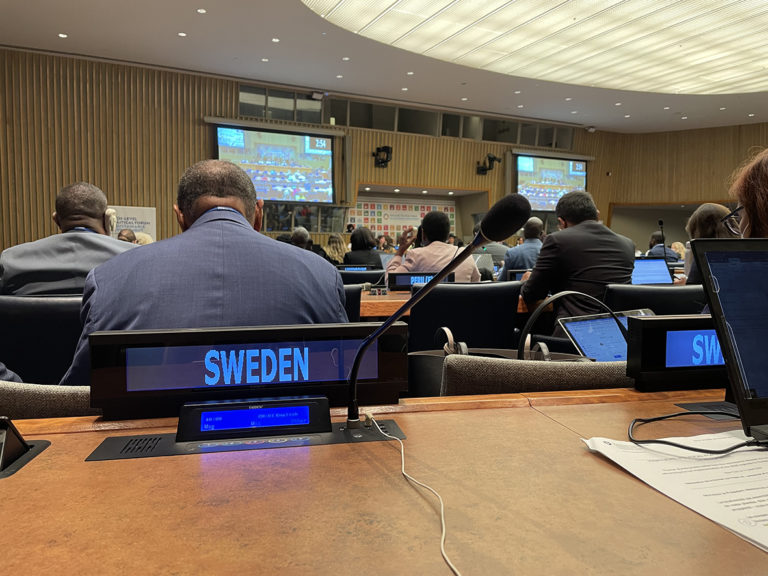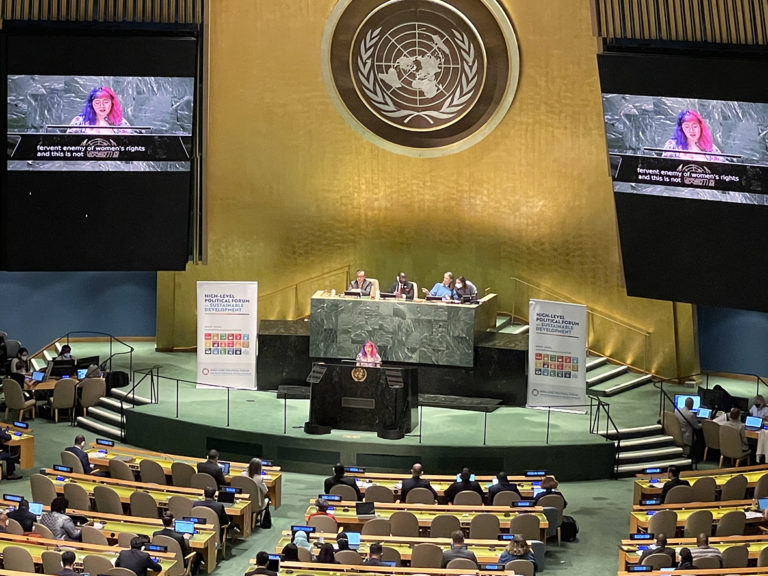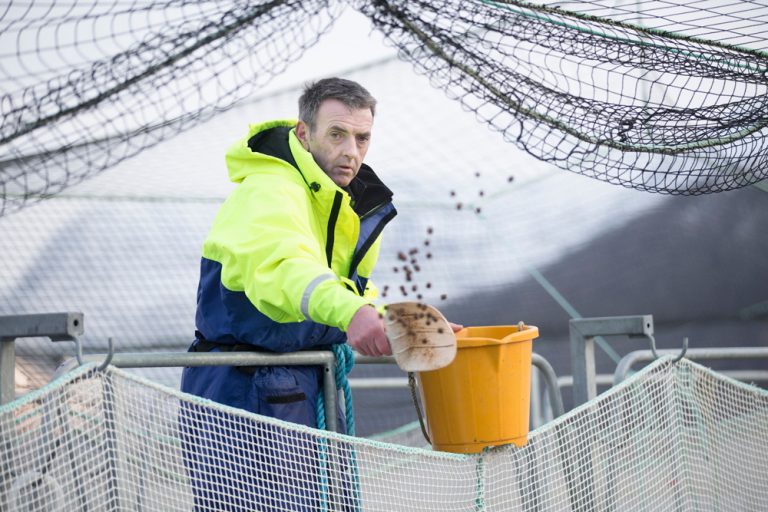This blog post was written by Jens Olsson, researcher at the Department of aquatic resources,Vice Dean responsible for environmental monitoring and assessment at the NJ-Faculty; and coordinator for SLU Water Forum.

The High-Level Political Forum (HLPF) is an annually recurring meeting that serves as UN’s platform for sustainability and focus on reviewing the progress and achievements of Agenda 2030. This years’ forum took place in early July, and was the first since the pandemic to be held on site in the United Nations headquarters in New York. The theme for the meeting was recovery from the pandemic while also advancing the implementation of Agenda 2030. The Sustainable Development Goals (SGD’s) in focus for the meeting were SDG 4 (Quality Education), 5 (Gender Equality), 14 (Life Below Water), 15 (Life on Land) and 17 (Partnerships for the Goals).
As SLU has extensive and decisive knowledge for the implementation of at least SDG 14 and 15, we were invited by the Government Offices of Sweden to be part of the Swedish delegation for HLPF. In my role as Vice Dean responsible for environmental monitoring and assessment at the NJ-Faculty and coordinator for SLU Water Forum, I participated as SLU’s representative in the delegation.
The reports shared at the meeting on the progress towards global sustainability was anything but positive. Despite that we are approaching the half-time summit of Agenda 2030, it is apparent that goal fulfilment is moving too slow, and in many cases in the opposite direction to what is desired. This is mainly the result of the Corona pandemic and Russia’s invasion of Ukraine, but also due to a lack of political will and societal commitment. The Ministerial declaration following HLPF was also one of the weakest so far, with substantial backlash with regards to gender equality and rights of vulnerable groups.
In spite of this negative development, during HLPF it was clearly stated that we now must go from words to action and accelerate the implementation of the extensive societal transformation needed to reach the ambitious goals of Agenda 2030. This also to hamper the impact of the concurrent and multiple global crises including climate change, biodiversity loss and pollution. What was also obvious at the meeting is that the perspectives of young and vulnerable people are essential for this transformation to happen, as is making use of local knowledge from, among others, indigenous people. It was concluded that economic growth needs to be decoupled from negative impacts on biodiversity, and that we are at a stage in time where knowledge for reaching the goals is available. Now, perhaps more than ever before, political will and societal commitment are essential to move from words to action.

For me this was a true personal experience, and despite the reports of slow progress and backlash towards reaching the goals of the Agenda in 2030, it was fascinating to see and meet that many countries and committed people in one place at one time. In spite of all the bad news, the spirit of hope was present, and I witnessed that the majority of participating countries shared their ambitions for a more sustainable future. It was also instructive to be part of a large and inclusive delegation with participation from a wide range of disciplines and backgrounds including representatives from governmental agencies (for example The Swedish Environmental Protection Agency and The Swedish Agency for Marine and Water Management), the civil societies, youth organisations and municipalities, and also politicians.
I think that for the implementation of Agenda 2030 in Sweden and beyond, SLU has a key role to play. However, we need to raise awareness of the Agenda in our organisation and accelerate our positive impact and contribution to social and environmental sustainability. Even more, I believe that we as a university can make a greater contribution with knowledge, data, advice, innovation and education to support the achievement of the ambitious goals of the Agenda.


